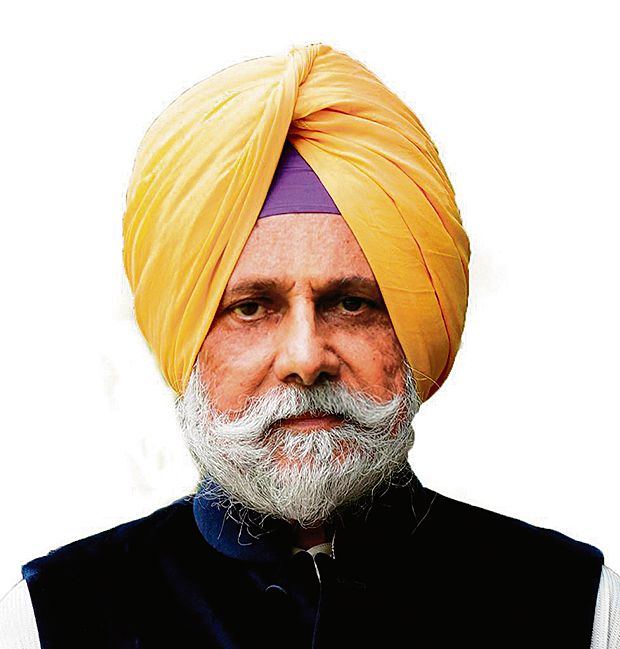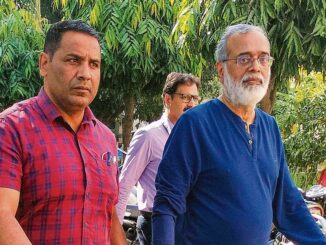
Public disillusionment is being shaped by the inequitable benefits of globalization
“This churn in established democracies, the ascendancy of far-right parties in Europe, the possibility of Trump’s re-election and Iran throwing up another conservative President raise questions about the state of the liberal democratic order. In 1989, Francis Fukuyama wrote in The National Interest that the world faced the ‘end of history’. He later explained that with the Berlin Wall’s fall in November 9, 1989, change appeared inevitable in the Soviet Union and Warsaw Pact nations. The Western model of a liberal democratic state tied to the market economy appeared universally acceptable. However, liberal democracies across all continents appear challenged today. Public disillusionment is being shaped by globalization’s inequitable benefits and immigration-induced xenophobia, feeding the rise of far-right parties. In India, populist and majoritarian politics has been molded by bigotry and jingoism.”

The Lok Sabha elections have set the stage for a series of critical elections globally. The Iranian presidential election was held on June 24 to find a successor to President Ebrahim Raisi, who was killed in a helicopter crash in May. With none of the candidates getting at least 50 per cent of the votes, there will be a run-off between the top two contenders.
Even Francis Fukuyama would concede that decades after his ‘end of history’ pronouncement, the global liberal order is challenged by a realignment of some of the old players.
In France, after his party’s rout in the European parliamentary elections, President Emmanuel Macron ordered a domestic parliamentary election. Huge gains by the far-right National Rally party of Marine Le Pen are being projected. The two-phase polls will end on July 7.
The UK is also poll-bound after Indian-origin Conservative Prime Minister Rishi Sunak ordered early parliamentary elections. A massive win for the Labour Party after 14-year Tory rule is foreseen, with tipped to be the PM.
The most significant election is of the US President in November. The opening debate between President Joe Biden and his predecessor Donald Trump was held by CNN on June 27. An incoherent and defensive Biden faced a glib and dissimulating Trump. They sparred over the economy, immigration, abortion and the Ukraine and Gaza wars.
This churn in established democracies, the ascendancy of far-right parties in Europe, the possibility of Trump’s re-election and Iran throwing up another conservative President raise questions about the state of the liberal democratic order. In 1989, Francis Fukuyama wrote in The National Interest that the world faced the ‘end of history’. He later explained that with the Berlin Wall’s fall in November 9, 1989, change appeared inevitable in the Soviet Union and Warsaw Pact nations. The Western model of a liberal democratic state tied to the market economy appeared universally acceptable.
However, liberal democracies across all continents appear challenged today. Public disillusionment is being shaped by globalization’s inequitable benefits and immigration-induced xenophobia, feeding the rise of far-right parties. In India, populist and majoritarian politics has been molded by bigotry and jingoism.
The scenario is complicated by the wars in Ukraine and Gaza. The Indian poll results brought relief to the G7 nations. The democratic recession in India and the repressive use of agencies against the Opposition have elicited criticism from the Western media and even by parliamentarians. But the lure of Indian markets and the Indian role as a counterweight to China compelled foreign leaders to hold their noses and engage India transactionally. The BJP’s loss of parliamentary majority and dependence on allies, at least theoretically, is expected to restore constitutionalism. But the ruling party’s initial moves, like the renomination of Om Birla as the Speaker despite his poor record, has dampened hopes.
President Biden is in the damage-control mode after his disastrous performance in the debate with Trump. The Iran-China-Russia axis would have observed this as well as the increased possibility of Trump’s return. Russian President Vladimir Putin would take solace in Trump reiterating his ability to end the Ukraine war quickly. That implies acceptance of the status quo by Ukraine. European Union (EU) states would also brace for turbulent trade and strategic ties with a Trump-led US.
There is speculation that if French President Macron’s gamble goes awry, he may resign. Le Pen has moderated her party’s stand on some issues, compared to her more radically right-wing father’s views. She is even endorsing military support to Ukraine. However, her party remains skeptical about the benefits of the EU. After the Brexit blow by Britain in February 2020, another exit or even a debate about it would weaken the group.
The Conservative Party is projected to lose the July 4 British parliamentary elections. If elected, the Labour Party will inherit a weak economy and post-Brexit disillusionment. But its leader Keir Starmer has moved the party to the political center, like Tony Blair in the 1990s. Labour has announced a ‘free to go’ for a Free Trade Agreement with India. It advocates ‘progressive realism’ in foreign policy. It seeks a new geopolitical partnership with the EU and an increase of the defense budget by 2.5 per cent, besides strengthened nuclear deterrence. It recalls that it was Foreign Secretary Ernest Bevin in the post-World War II Labour government of Clement Attlee who helped create NATO and Britain’s nuclear deterrence.
In the Iranian presidential election, the sole reformist candidate, approved by the Guardian’s Council, is Masoud Pezeshkian. He was the health minister in the government of reformist President Mohammad Khatami (1997-2005). Opposing him are conservative politicians Saeed Jalili, a former nuclear negotiator, and Mohammad Bagher Ghalibaf, Speaker of the Iranian parliament.
Pezeshkian’s candidature is being attributed to Supreme Leader Ali Khamenei’s worry over mere 48 per cent voting in 2021, when late President Raisi had won the election. The Iranian voters may be denied a real choice with politically vetted candidates, but they can express their disapproval of the Islamic regime by avoiding voting. The elected President’s legitimacy is more crucial than ever before due to the economic stress faced by the people due to Western sanctions. Huge crowds at polling booths late in the evening indicated revived public interest in the political contest.
Pezeshkian led in the first round, with Jalili second. In the runoff, the third candidate’s votes will shift to Jalili because both are supported by conservatives. The same happened in the 2005 presidential election when Mahmoud Ahmadinejad was trailing in the first round and then won in the second one as the conservative votes consolidated. Iranian people can sometimes surprise the Islamic regime by voting for reform.
Even Fukuyama would concede that three-and-a-half decades after his ‘end of history’ pronouncement, the global liberal order is challenged by a realignment of some of the old players. Instead of the Soviet Union, it is the China-Russia-Iran axis and North Korea now. India is still doing a balancing act between the two sides in a neo-Cold War, as demonstrated by PM Modi’s upcoming visit to Russia. The difference is that maintaining equidistance is more difficult as China, which is inimical to India’s rise, is co-leading one side. The BJP must register the June 4 message of the people. India’s enemies are abroad, not at home.
(The author is a Former Ambassador and Ex-Secretary, Ministry of External Affairs, India)





Be the first to comment